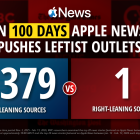Apps collect data about their users. What happens when a foreign government owns that data?
The U.S. military did not want to find out. According to an NBC News report, the Defense Information Systems Agency advised employees to avoid using the app, TikTok, which is owned by the Chinese regulated company ByteDance. The ban applied to government-issued phones, tablets, and other devices. The Navy has also banned the app.
 Senator Josh Hawley (R-MO) warned in a November 5 hearing, “A company compromised by the Chinese communist party knows where your children are, knows what they look like, what their voices sound like, what they’re watching and what they share with each other.” Lt. Col. Robin Ochoa, an Army spokeswoman, told Military.com, “It is considered a cyber threat.”
Senator Josh Hawley (R-MO) warned in a November 5 hearing, “A company compromised by the Chinese communist party knows where your children are, knows what they look like, what their voices sound like, what they’re watching and what they share with each other.” Lt. Col. Robin Ochoa, an Army spokeswoman, told Military.com, “It is considered a cyber threat.”
Military.com also relates that guidance released by the Defense Department state, “Be wary of applications you download, monitor your phones for unusual and unsolicited texts etc., and delete them immediately and uninstall TikTok to circumvent any exposure of personal information.”
The Committee on Foreign Investment in the United States claims that ByteDance did not seek clearance when it purchased Musical.ly, a music app, for $1 billion. The company claimed to NBC that China did not have any control over content in the app. But TikTok’s censorship policies suggest otherwise.
[ads:im:1]
In the past year, TikTok has censored posts about Trump, Christianity, LGBTQ, and Uyghur Muslims. Criticism of China is also banned in the app’s guidelines, which used to blanket the ban under “criticism/attack towards policies, social rules of any country,” according to The Guardian. Since then, the guidelines have changed to simply ban “provocative” content.
Yet content that appears to portray the torture tools of the Chinese police force is allowed on the platform. A video showing Chinese police pointing to a man locked into a “Tiger Chair” was circulated on TikTok in October. The Washington Post warned that TikTok could be “one of China’s most effective weapons in the global information war, bringing Chinese-style censorship to mainstream U.S. audiences and shaping how they understand real-world events.”
The military had been using the app as a recruiting tool before December, according to Military.com.
[ads:im:2]









